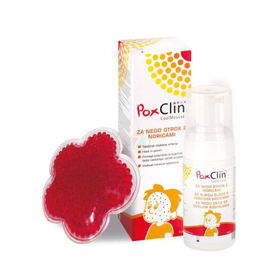Vprašanje stranke:
Kako dolgo moramo biti doma, ko zbolimo za vodenimi kozami? Vprašanje anonimne stranke
Odgovor farmacevta:
Ko zbolimo za vodenimi kozami, je priporočljivo ostati doma, vse do tedaj, dokler nismo več nalezljivi. To običajno traja od 5 do 7 dni po začetku izpuščajev, ko se vsi izpuščaji posušijo in nastanejo krastice. Medtem ko smo nalezljivi, je pomembno, da se izoliramo, da preprečimo širjenje virusa na druge ljudi, zlasti na tiste, ki morda še niso imeli noric ali niso bili cepljeni proti njim.
Poleg tega se je priporočljivo izogibati stiku z ljudmi, ki so bolj dovzetni za resne zaplete noric, kot so dojenčki, nosečnice in ljudje z oslabljenim imunskim sistemom. To lahko vključuje omejitev obiskov pri bolnikih v bolnišnici ali v drugih zdravstvenih ustanovah, kjer je prisotno večje število ljudi z oslabljenim imunskim sistemom.
Poleg tega je pomembno, da med nalezljivim obdobjem upoštevamo dobro higiensko prakso, kot je redno umivanje rok z milom in vodo, da preprečimo širjenje virusa. Prav tako se izogibajmo praskanju po izpuščajih, saj lahko to povzroči okužbo ali brazgotine. Če je le mogoče, je najbolje, da ostanemo doma in se izogibamo stiku z drugimi, vse dokler nismo več nalezljivi.
Ali morajo tudi starši otrok, ki so zboleli za vodenimi kozami, ostati doma?
Starši otroka, ki je zbolel za vodenimi kozami, morda niti ne bodo ostali doma, še posebej v primeru, da so že imeli norice ali so bili cepljeni proti njim. Če so starši imuni na norice, običajno nimajo tveganja za okužbo z virusom varicella-zoster, tudi če so v stiku z otrokom, ki norice ima.
Vsekakor pa je priporočljivo, da se starši posvetujejo s svojim zdravnikom, da preverijo svoj imunski status in preverijo tudi, ali so zaščiteni pred virusom noric. Če niso prepričani o svojem imunskem statusu ali če noric še niso preboleli, je priporočljivo, da se izognejo stiku z otrokom, dokler ta ni več nalezljiv.
Poleg tega, če starši obolelih otrok delajo v okoljih, kjer obstaja večje tveganje za resne zaplete noric, kot so bolnišnice ali domovi za starejše, lahko delodajalec zahteva, da takšne osebe ostanejo doma, saj s tem preprečijo širjenje virusa na ogrožene posameznike.
V vsakem primeru je izrednega pomena, da starši sledijo navodilom zdravnikov in lokalnih zdravstvenih organov ter upoštevajo smernice glede preprečevanja širjenja virusa noric na druge ljudi.
Zanimivo branje: Vodene koze pri odraslih
Zanimivo branje: Vodene koze kdaj k zdravniku








 Facebook
Facebook
 Instagram
Instagram
 info@moja-lekarna.com
info@moja-lekarna.com

